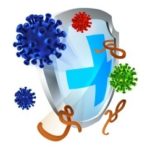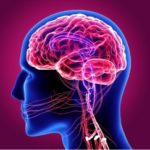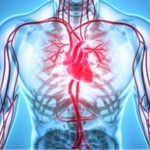OMEGA 3+6+9
Why are they essential for children and adults?
It’s because they belong to the group of Essential Unsaturated Fatty Acids (PUFA and MUFA) which are necessary for the proper functioning of our bodies. They are essential because insufficient amounts of these compounds can lead to disease of many systems and organs in the human body.
The body is unable to synthesise for some of these acids – Omega 3 ALA and Omega 6 LA – itself, which is why it is particularly important that they be supplied in the food we eat. Omega 3 ALA and Omega 6 LA are called precursor essential fatty acids, the Mother and Father of other Omega acids, because the human body uses them to synthesise other derivative forms, such as EPA and DHA. By means of a series of biochemical transformations, they are further processed into acids from different families and then into hormones, such as eicosanoids, providing that Omega 3 ALA and Omega 6 LA are supplied in sufficient amounts in the diet.
The importance of OMEGA 3 for the body:
- Influences the correct functioning of the immune system in children and adults.
- Displays anti-inflammatory and inti-allergenic properties.
- Positively influences the condition of the heart and prevents circulatory system disease.
- Plays a significant role in the prevention and treatment of cancer.
- Stimulates proper growth and development among children.
- Influences the development of the nervous system among children.
- Displays anti-depressant properties.
- Positively affects brain function, memory, and concentration.
- Influences the proper development and functioning of the nervous system.
- Prevents occurrence of type 2 diabetes and metabolic disturbances, and aids in their treatment.
- Prevents obesity.
- Positively affects skin, hair, and nails.
- Prevents stroke and reduces its severity.
Omega 3 has a probiotic effect on the:

Digestive system
- Omega 3 fatty acid is useful in the treatment of inflammations of the digestive tract, including enteritis, and peptic and duodenal ulcers.
- Restores insulin resistance (by improving insulin sensitivity), and reduces metabolic disturbances, preventing the development of metabolic syndromes and type 2 diabetes.
- Accelerates the metabolism and enhances fat-burning processes, while preventing deposit of fatty tissues.
- Aids in fighting constipation.

Immune system
- Influences the proper functioning of the immune system, strengthening resistance to disease.
- Displays anti-inflammatory and anti-allergenic properties by preventing excessive immunological response and the severity of inflammatory processes in the aetiology of viruses and bacteria.
- Aids in the treatment of rheumatoid joint inflammation and chronic bowel inflammation, reducing symptoms.

Cancer prevention
- Plays a role in the prevention and treatment of cancerous tumours.
- Mitigates the side effects of chemotherapy.
- Omega 3 features anti-cancer qualities which work by inducing apoptotic cell death in human cancer cells, both by itself and in conjunction with conventional therapies.
- Raises susceptibility of cancer cells to conventional therapies, increasing their effectiveness, especially in the case of hard-to-treat cancers.
- In contrast to traditional therapies, Omega 3 induces selective cytotoxicity in cancer cells, without displaying toxicity towards healthy cells.

Brain and nervous system
- The brain consists of as much as 60% fatty acids, of which 25% are Omega 3 acids. This is why they are essential for the proper functioning of the central nervous system.
- Omega 3 ALA stimulates neuronic protection, neuroplasticity, and expansion of the blood vessels in the brain, improving brain function, memory, and concentration.
- Influences proper development and functioning of the nervous system.
- Prevents diseases of the brain and nervous system, such as Alzheimer’s, ADHD, and dyslexia.
- Prevents stroke and reduces its severity.
- Displays anti-depressant action, positively influencing mood and reducing feelings of rage, fear, or fatigue by supporting proper functioning of cell membranes of the cerebral cortex.
- Leads to a reduction in nerve damage which is often the cause of numbness and shaking.
- Protects the central nervous system and reduces the impact of many neurological disorders.

Cardiovascular system
- Reduces risk of heart attack and stroke by decreasing platelet aggregation, that is the tendency of platelets to form blood clots, by reducing the platelets’ ability to stick together by stopping the production of strongly prothrombotic substances.
- Prevents occurrence of atherosclerosis by modifying the synthesis of eicosanoids, and reducing the level of blood serum cholesterol, and by reducing platelet adhesion.
- Aids in the treatment of hypertension, stabilising increased arterial blood pressure, reducing heartrate, and improving resistance to arhythmia.
- Increases elasticity of arterial walls.
- Reduces triglyceride levels.

Beauty and body
- Fights obesity with a limiting effect on lipogenesis.
- Positively influences skin, hair, and nails, as well as softening the effects of skin disease (such as atopic dermatitis).
- Accelerates healing of wounds.
Source: leenvit.com
